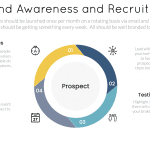4 Essential Steps to Prioritize Skill Building vs Training for Brokerage Leaders
Leadership pressure in top-tier brokerages inevitably centers on performance and succession—yet often, the default approach remains traditional training, focused on lectures and passive learning. For leaders at the peak of their careers and businesses, this model is insufficient and ineffective. The real imperative is a strategic shift toward skill building, a hands-on, iterative process that moves beyond mindset and into measurable behavior change.
This distinction is foundational for elite real estate leaders determined to elevate their teams’ proficiency and drive sustainable results. As discussed in Inman News by Chris Pollinger, true mastery requires embracing discomfort, practice, and peer feedback—not passive instruction.
Skill Building vs Training
Traditional training in brokerage environments often defaults to lecture-style delivery—a single expert instructs a group, sharing knowledge in a one-way transmission. This format is a relic from childhood education systems and, while it can shape adult mindsets, it rarely results in lasting behavioral change.
Conversely, skill building demands active participation and repeated practice. It involves role playing, application in real scenarios, and learning from trial and error. To illustrate, world-class athletes gain mastery not from watching lectures but by repeatedly stepping into the arena, testing their techniques, and adjusting based on experience.
Leaders who champion skill building recognize that proficiency develops through deliberate effort over time. Mistakes become valuable feedback, and resilience to critique is essential. This mindset underpins sustainable growth—not fleeting knowledge.
Role Playing: Embrace Discomfort for Growth
Role playing is a cornerstone of effective skill building. Although it often evokes discomfort and challenges egos, it is indispensable for real improvement. Authentic feedback circulates freely in a safe environment where peers provide candid suggestions focused on skill enhancement.
Brokerage leaders must normalize this discomfort as a necessary step rather than a hurdle. Skipping role play to avoid unease is effectively impeding progress. For teams lacking available partners, video recording serves as a practical alternative—capturing presentations and objection handling for objective self-review.
It is important to note, however, that video practice cannot replace two-way conversational practice. Both modalities have distinct roles within a comprehensive skill-building strategy.
Real-World Practice: Integrate Consistent Application
Professions like medicine, law, and financial planning embed “practice” into their daily rhythms; real estate must follow suit. Approaching brokerage leadership as an art requiring ongoing practice fosters an ingrained growth mentality.
The market evolves continuously—what works today may falter tomorrow. Leaders who cultivate persistent, intentional development outpace competitors irrespective of background or pedigree. Grit and tenacity become decisive advantages.
Operationally, this requires booking time each week for authentic real-world engagement—recruiting dialogues, listing presentations, or prospecting calls—deliberately structured to sharpen skills through application.
Watch, Do, Teach: The Complete Skill Building Cycle
The skill acquisition process unfolds in three progressive phases:
- Watch: Observing skilled practitioners accounts for roughly 7% of mastery. While low risk and passive, it is necessary but insufficient alone.
- Do: Active performance, especially in front of peers, composes 70% of skill development. This phase challenges fears of rejection and necessitates repeated cycles of execution and feedback.
- Teach: Explaining techniques to others cements mastery by requiring articulation of intuitive knowledge, contributing the final 23% of competence.
Too often, brokerage associates enter client appointments without adequate rehearsal—exposing a systemic gap in leadership approaches. For brokers and team leads working at the apex, adopting a skill-building mindset over traditional training is essential. It is the critical factor enabling associates to fulfill their potential and secure durable success.





